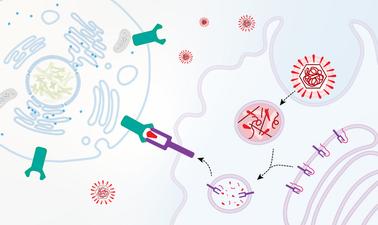MOOC List is learner-supported. When you buy through links on our site, we may earn an affiliate commission.

MOOC List is learner-supported. When you buy through links on our site, we may earn an affiliate commission.
This is the final cell biology course in a four-part series. Building upon the concepts from biochemistry, genetics, and molecular biology from our 7.00x Introductory Biology and 7.05x Biochemistry MOOCs, these cell biology courses transition to a comprehensive discussion of biology at an experimental level.
How do you go from a single cell to trillions of cells working together? And what happens when this amazing collective is confronted with pathogens? Professors Rebecca Lamason and Sebastian Lourido will challenge you to apply your foundational knowledge of cell biology to the next level. You will explore how cells function to maintain organism health and the consequences if these processes fail.
We developed the 7.06x Cell Biology series with an emphasis on:
- Developing your scientific thinking skills including articulating hypotheses, performing thought experiments, interpreting data, and designing experiments.
- Using data based on real scientific experiments and highlighting the scientific process in assessments.
- Asserting that biology is an active field that changes daily through examples of research and relevance to medicine, not static information in a textbook.
- Uniting themes and principles that inform how scientists conduct and interpret research.
- Implementing the science of learning in the course design.
What you'll learn
1. How to apply biochemical and genetic approaches to address fundamental questions regarding regulation of cellular functions and interactions.
2. How to evaluate the conclusions and models that scientists develop about cell biology from experimental approaches and results.
3. How to select specific empirical methods and techniques based on the different types of questions scientists ask.
4. How to design experiments to answer cell biology experiments with proper controls.
5. How to compare and contrast the properties of different cell types.
6. How to identify recurring themes in cell biology impacting human health.
Syllabus
- Cell Adhesion and Polarity
- Morphogenesis, Stem Cells, and Regeneration
- Cell Death and Autophagy
- Host-Pathogen Interactions
- Cell Biology of Immune Systems
- Cancer and Metastasis
MOOC List is learner-supported. When you buy through links on our site, we may earn an affiliate commission.
MOOC List is learner-supported. When you buy through links on our site, we may earn an affiliate commission.
